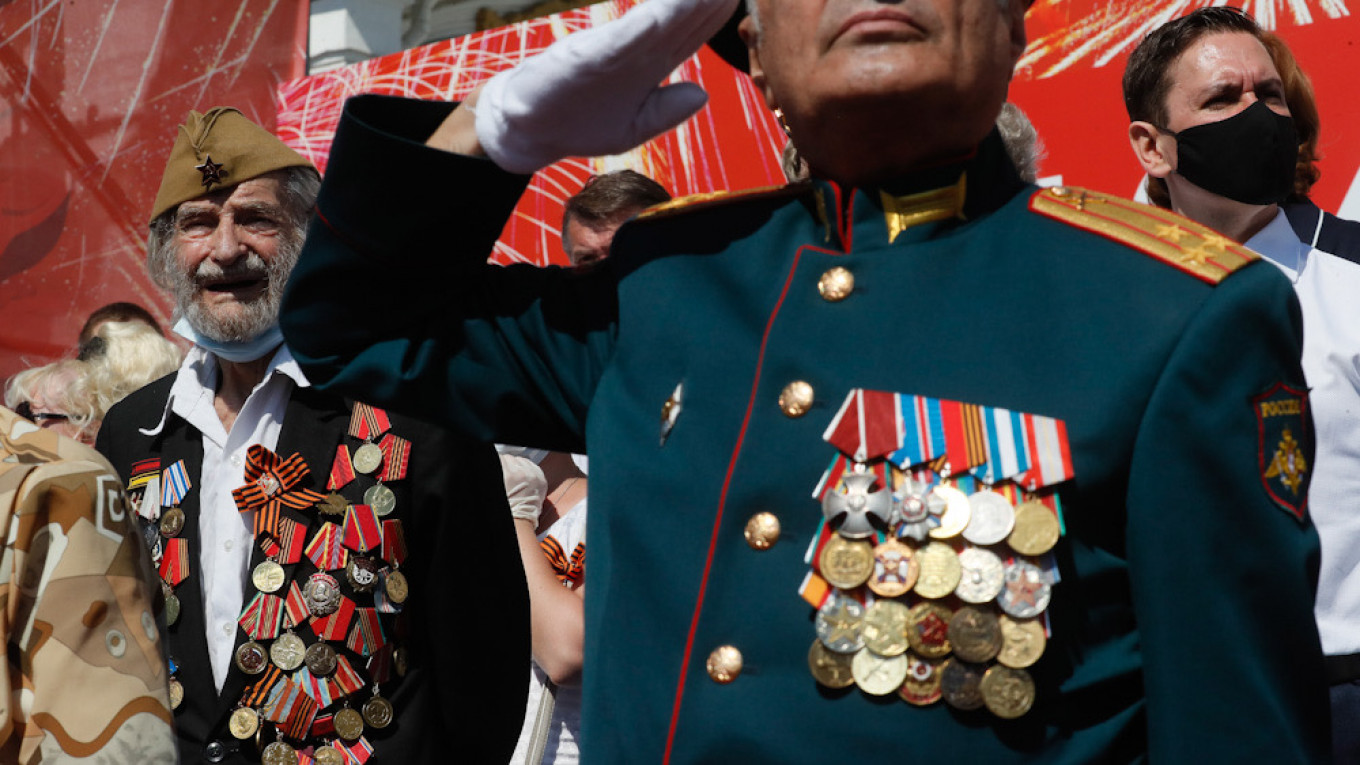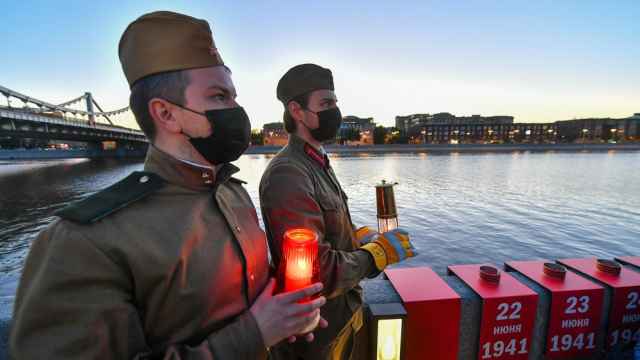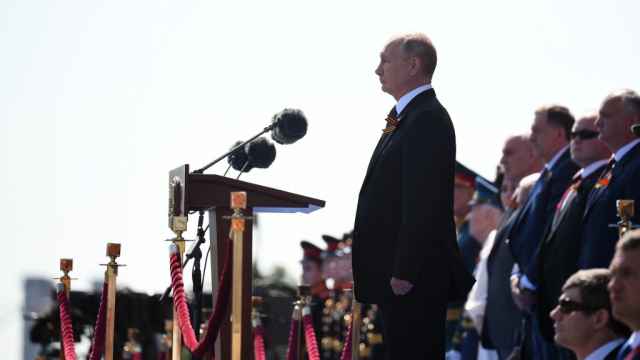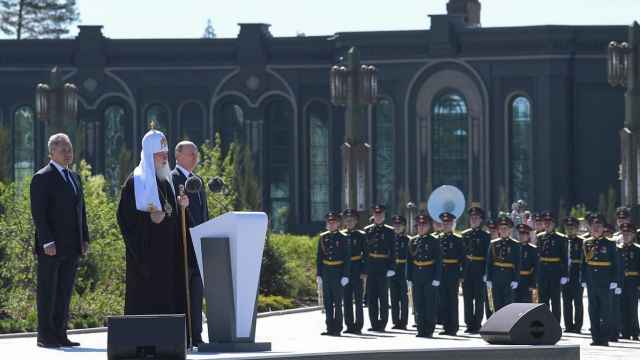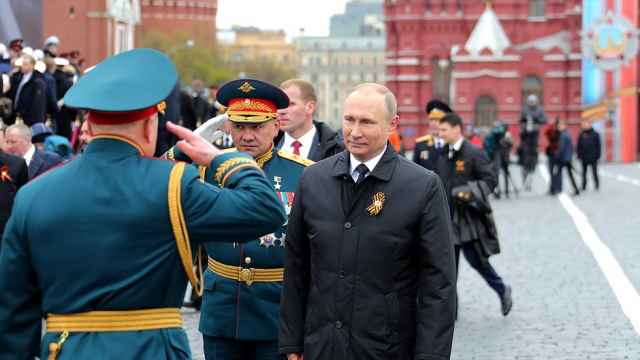When 94-year-old World War II veteran Vasily’s family made their regular check of his mailbox on Saturday they found a formal summons from the prosecutor’s office in Volgograd, a city in southern Russia previously known as Stalingrad.
It said he had to attend a hearing on Dec. 1 to be questioned as a witness in the murders of at least 1,700 Soviet citizens committed by Nazi invaders and their accomplices during the occupation of the Stalingrad region between July 17, 1942, and Feb. 2, 1943.
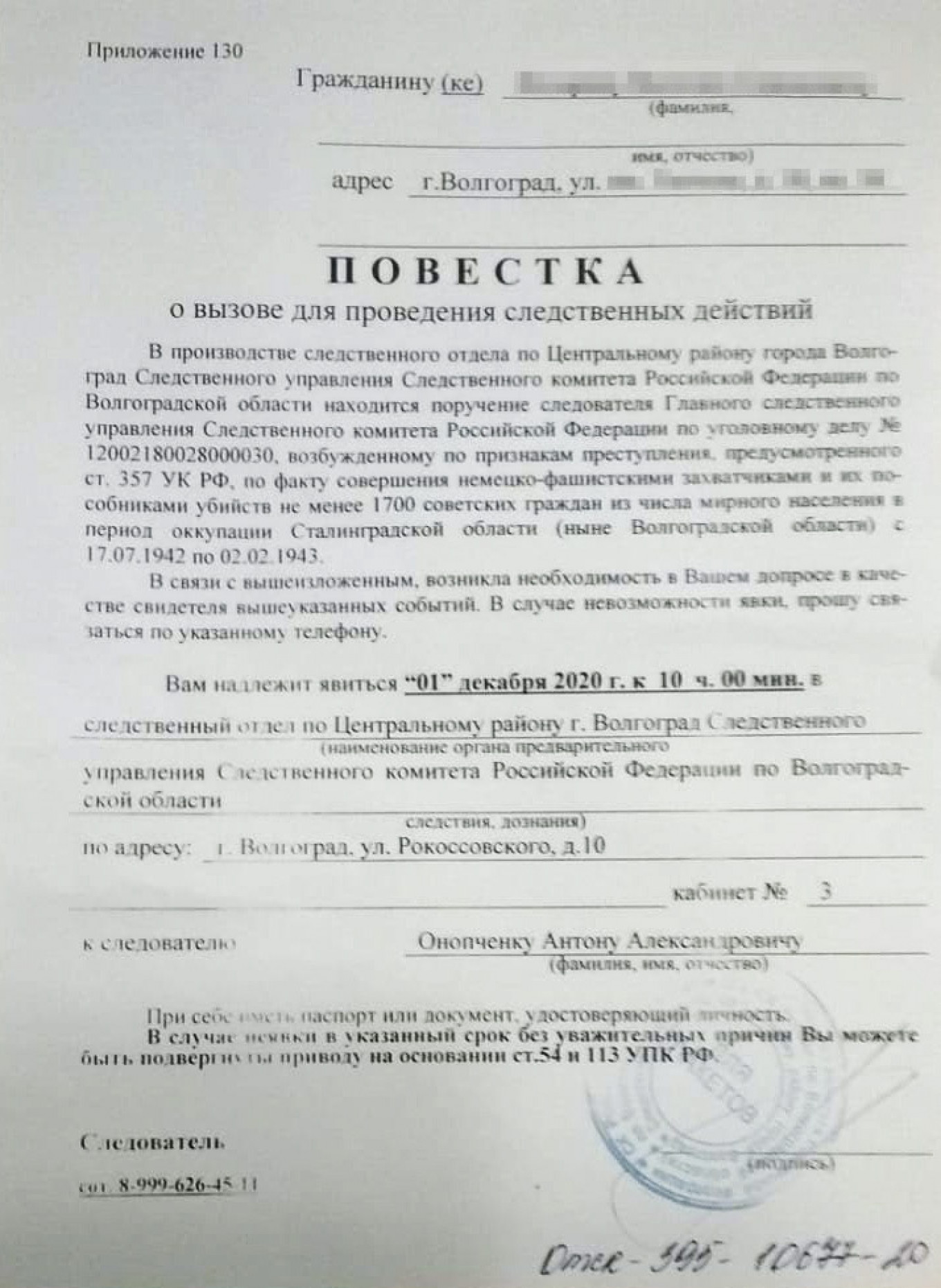
“We just couldn’t believe that the prosecutors would summon a frail old man to their offices during the coronavirus outbreak using such a strict tone,” the veteran’s grandson Denis Chistyakov told The Moscow Times. “Why not just come to his house for a chat?”
While Russia has in recent years launched a series of new archive probes into World War II, reports are now starting to emerge of veterans being summoned to recount their experiences. The shift comes against a background of what observers say is a newfound interest — spearheaded by President Vladimir Putin — in the conflict and how the world remembers it.
The family ignored the summons and decided not to mention it to Vasily — who fought in the Battle of Stalingrad and was later taken prisoner and sent to eastern Germany — fearing the investigation would damage his health. The document said Vasily would be forced to attend another hearing if he didn’t show up, but there has been no follow up regarding his non-appearance yet.
“He doesn’t really like talking about those war days,” Chistyakov said.
The prosecutors’ office in Volgograd told The Moscow Times that such summons had been sent to at least 80 veterans in the region; the independent Novaya Gazeta outlet reported that they were also being sent to veterans throughout the country.
The new investigations focus on World War II-era atrocities committed by Nazi forces across Russia, including in Volgograd. Last month, in what appears to be the first ruling of its kind, a court in the northwestern region of Novgorod said mass killings of Soviet citizens in the village of Zhestyanaya Gorka were an act of genocide by the Nazi army.
In a July interview with the state-run RIA Novosti news agency, the head of Russia’s Investigative Committee Alexander Bastrikin said that the aim of these new investigations was to “establish, identify and name all the guilty Nazis, whether they are alive or not….Nuremberg did not convict all those responsible.”
Bastrinik added that the investigations were also aimed at challenging those who are trying to rewrite history.
While Bastrikin previously said historians were using archive materials for these investigations, the case of Vasily and the others show that veterans who witnessed the events are also being called in for questioning.
It is the Kremlin’s intense interest in the war that is prompting the questioning of war veterans, Andrei Kolesnikov, a senior fellow at the Carnegie Moscow Center, believes.
In a rare op-ed published in June in U.S. magazine The National Interest, Putin blamed western powers for appeasing Nazi Germany and signing the Munich Agreement in 1938. He also defended the controversial 1939 Molotov-Ribbentrop Pact, a nonaggression treaty between Adolf Hitler's Germany and Josef Stalin's Soviet Union.
On Sept. 1, in front of a group of schoolchildren, Putin further outlined his frustration and hinted that the West was rewriting history.
“People who cooperate with the enemy during a war are called, and have always and everywhere been called, collaborators. Those who agree with the rewriters of history can easily be called the collaborators of today,” Putin said during the public lesson.
Russia’s Investigative Committee recently also opened up a special department to investigate crimes related to the rehabilitation of Nazism and the falsification of history.
Critics have argued the government has been using law to curb free speech and historical debate. For instance, in June 2016, a court in Perm convicted Vladimir Luzgin under the provisions of the rehabilitation of Nazism law for “falsifying history” by reposting an article saying that the Soviet Union and Germany attacked Poland simultaneously in 1939, a claim generally accepted among historians
Kolesnikov said that in questioning veterans, the authorities are reaching fever pitch in the pursuit of their “selective” historical goals.
“What is the point of this? The veterans will not remember the names of Nazi soldiers. Even the Soviets wouldn’t have done this.”
Kolesnikov also pointed out that while investigators have opened up new war crime cases against Nazi Germany, the Kremlin has been keen to erase the memory of the Katyn Massacre of 1940, when Stalin’s secret police killed approximately 22,000 Polish officers and soldiers in a forest in western Russia.
Whatever the goals, critics say the means the authorities are using to achieve them are inappropriate.
“Imagine, 25-year-old investigators are sitting in Volgograd sending summons to 90-year-old old grandparents requiring them by law to come for questioning during the peak of the coronavirus about events that took place in the 1940s,” said human rights lawyer Pavel Chikov.
A Message from The Moscow Times:
Dear readers,
We are facing unprecedented challenges. Russia's Prosecutor General's Office has designated The Moscow Times as an "undesirable" organization, criminalizing our work and putting our staff at risk of prosecution. This follows our earlier unjust labeling as a "foreign agent."
These actions are direct attempts to silence independent journalism in Russia. The authorities claim our work "discredits the decisions of the Russian leadership." We see things differently: we strive to provide accurate, unbiased reporting on Russia.
We, the journalists of The Moscow Times, refuse to be silenced. But to continue our work, we need your help.
Your support, no matter how small, makes a world of difference. If you can, please support us monthly starting from just $2. It's quick to set up, and every contribution makes a significant impact.
By supporting The Moscow Times, you're defending open, independent journalism in the face of repression. Thank you for standing with us.
Remind me later.



